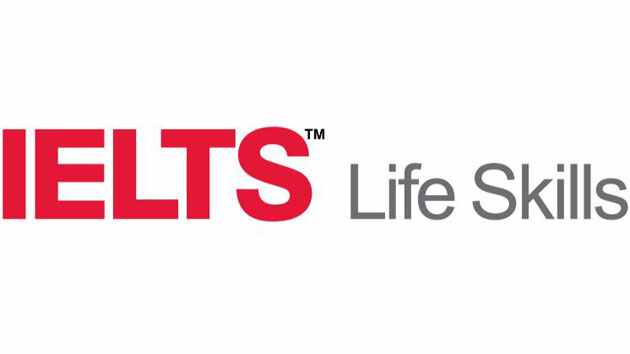The path to becoming a nurse is both inspiring and demanding, with the profession requiring a unique blend of skills, compassion, and technical know-how. Nurses are pivotal to the healthcare system, providing essential services that range from patient care to administrative support. Understanding the steps to enter the field, the educational requirements such as an online nursing program, and the opportunities for growth can help you embark on a rewarding career in nursing. In this article, we'll explore the journey to becoming a nurse and what you can expect along the way.
Understanding the Role of a Nurse and the Required Skill Set

Nursing is a multifaceted profession that extends well beyond the walls of hospitals and clinics. Nurses are advocates, educators, and caregivers who play a crucial role in patient health and recovery. To excel in nursing, one must possess excellent communication skills, the ability to work under pressure, and a deep understanding of human anatomy and medical practices. Empathy and emotional intelligence are also critical, as they enable nurses to provide compassionate care and support to patients and their families.
The role of a nurse includes administering medication, performing diagnostic tests, and monitoring patient progress, but it's their personal touch that often sets them apart. Successful nurses are adept at managing time, coordinating with other healthcare professionals, and staying up to date with the latest medical developments. A strong ethical foundation and the ability to maintain patient confidentiality are non-negotiable aspects of the job as well.
Educational Pathways to Nursing: Degrees and Certifications
Education is the foundation of a successful nursing career. Aspiring nurses begin by pursuing relevant degrees, with options ranging from an Associate's Degree in Nursing (ADN) to a Bachelor of Science in Nursing (BSN). While an ADN can be a quicker route into the field, many employers now prefer or require a BSN due to the broader educational background it provides. Both degrees prepare students for the NCLEX-RN exam required for licensure.
A Bachelor of Science in Nursing offers a comprehensive approach, often covering general education courses, along with nursing-specific subjects such as pharmacology, anatomy, and healthcare ethics. Many programs provide hands-on experiences through clinical rotations, which are essential for developing practical nursing skills. For registered nurses with an ADN, there are RN-to-BSN bridge programs available that respect the previous experience and education.
For those considering further education, Master of Science in Nursing (MSN) and Doctor of Nursing Practice (DNP) programs offer routes into advanced practice nursing roles, such as nurse practitioners, nurse anesthetists, or nurse midwives. These advanced degrees provide specialized training and open doors to leadership roles, research positions, and higher earning potential.
Navigating the Licensing Process: Steps to Becoming a Registered Nurse

Passing the National Council Licensure Examination (NCLEX-RN) is a pivotal step in becoming a registered nurse. The exam assesses the knowledge, skills, and abilities essential for safe and effective practice at the entry-level. Prospective nurses should thoroughly prepare for this challenging test, using study guides and review courses to increase the likelihood of success.
In addition to passing the NCLEX-RN, nurses must meet the specific licensure requirements of their state's board of nursing. These prerequisites can include criminal background checks, submission of transcripts, and citizenship or residency proof. It's important for candidates to understand and comply with these regulations to avoid any delays or issues in obtaining their license.
Career Advancement and Specialization Opportunities in Nursing
After entering the nursing field, many paths lead to career growth and specialization. Nurses can choose to advance their practice by focusing on a specific branch of medicine such as oncology, pediatrics, geriatrics, or cardiac care. Specializing often involves additional certifications or advanced degrees, which not only bolster expertise but can also elevate salary prospects and job fulfillment.
Those yearning for leadership roles may gravitate towards positions such as nurse managers, directors of nursing, or healthcare executives. These roles require strong leadership abilities, a deep understanding of healthcare systems, and often advanced degrees or business acumen. The evolution from bedside care to administrative responsibilities marks a significant shift in one's nursing career, often bringing new challenges and rewards.
Education and mentorship are also crucial aspects of the nursing field, with experienced nurses taking on roles as educators or clinical instructors. The opportunity to shape future generations of nurses through teaching and guidance is a revered and impactful direction in a nursing career. Engaging in professional organizations and staying involved in the nursing community can boost visibility and open doors to such roles.
Overall, a nursing career offers a fulfilling journey with endless opportunities for personal and professional growth. Remember, the path you choose in nursing is only the beginning, and the opportunities for advancement are as abundant as they are varied.
Passing the National Council Licensure Examination (NCLEX-RN) is a pivotal step in becoming a registered nurse. The exam assesses the knowledge, skills, and abilities essential for safe and effective practice at the entry-level. Prospective nurses should thoroughly prepare for this challenging test, using study guides and review courses to increase the likelihood of success.
In addition to passing the NCLEX-RN, nurses must meet the specific licensure requirements of their state's board of nursing. These prerequisites can include criminal background checks, submission of transcripts, and citizenship or residency proof. It's important for candidates to understand and comply with these regulations to avoid any delays or issues in obtaining their license.

.jpg)






